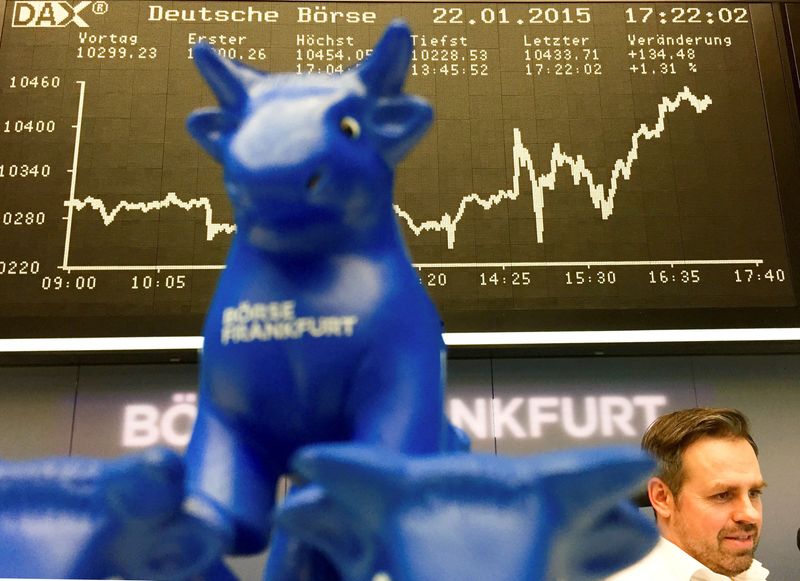This post was originally published on this site

Investing.com – European stock markets are expected to open largely unchanged Tuesday, stabilizing after the previous session’s sharp losses although investors remain on high alert over recession risks.
At 02:00 ET (06:00 GMT), the DAX futures contract in Germany traded largely flat, CAC 40 futures in France dropped 0.1%, and the FTSE 100 futures contract in the U.K. fell 0.2%.
The main European markets slumped on Monday, with the DAX dropping 2.2% and the CAC 40 down 1.2%, after Russia indefinitely closed one of its main gas supply pipelines to Germany, sparking fears of severe energy shortages in Europe during the approaching winter.
While these markets are expected to stabilize Tuesday, investors remain on edge ahead of Thursday’s European Central Bank meeting. This is expected to see the policymakers authorize a second, large interest-rate hike, tightening to combat inflation fast approaching double digits before economic conditions deteriorate further.
The Reserve Bank of Australia led the way earlier Tuesday, raising its cash target rate by 50 basis points to 2.35%, its highest level since 2014, and the fifth interest rate increase so far this year.
Economic data just released Tuesday saw German factory orders fall a hefty 1.1% in July, a continuation of the contraction seen the previous month, and indicative of the economic slowdown in the euro zone’s largest economy.
The stock market that held up reasonably well on Monday was in the U.K., with investors preparing to welcome Liz Truss as the country’s new prime minister.
Truss will see Queen Elizabeth at Balmoral Castle later this morning to form her government, and has promised tax cuts as well as support for households facing huge power bills.
In corporate news, Lufthansa (ETR:LHAG) will be in the spotlight Tuesday after a labor union confirmed the airline’s pilots will strike again this week, escalating a wage dispute that will further plague a summer of travel chaos.
It follows a strike last week that forced the cancellation of hundreds of flights.
Oil prices traded in a mixed fashion Tuesday as traders digested a decision by top producers to trim output levels to support prices amid fears of slowing demand and economic growth.
The Organization of the Petroleum Exporting Countries and allies, a group known as OPEC+, announced on Monday that it will cut output by a modest 100,000 barrels per day in October, roughly 0.1% of global demand.
Oil prices have fallen since the start of June on concerns that interest rate hikes and COVID-19 curbs in parts of China, the world’s top crude importer, may slow global economic growth and cool oil demand.
By 02:00 ET, U.S. crude futures traded 2.1% higher at $88.66 a barrel, while the Brent contract fell 0.7% to $95.03. Both contracts surged nearly 3% on Monday, but there was no U.S. settlement on Monday, the U.S. Labor Day holiday.
Additionally, gold futures rose 0.3% to $1,727.50/oz, while EUR/USD traded 0.3% higher at 0.9954.


